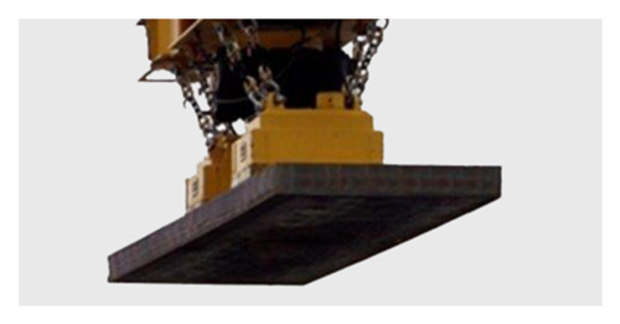Case Study | Optimisation of the Transport Chain by Means of a Standardised IT Platform

Production & Supply Chain
Challenge
A German industrial group produces best-in-class flat rolled steel, stainless steel, acid-resistent and heat-resistant steels as well as high-performance materials such as nickel alloys and titanium. The company is a global leading manufacturer in these segments and has more than 156,000 employees in approximately 80 countries. The steel plant in Brazil produces slabs – primary products of steel – which need to be shipped to processing plants for further processing. The steel slabs are shipped from Brazil via the USA and Rotterdam to Duisburg and Bochum. 230,000 blocks (32 tons each) are on the move each year.
Background
Each steel block must be identified before shipping because the correct loading onto the ship plays an important role. The optimal loading planning is carried out by means of a customer’s special software which guarantees, among other things, that the ship does not tilt during the loading process. The objective was to ship the correct slabs in the correct order from the plant to the port. Errors in the delivery cost the extremely precious time. Such delays and, therefore, extension of lay days of the ships in the ports, cause unnecessary standing costs. The goal was to make the logistics process as automatic as possible, thus reducing the loading time/lay time/costs.
Solution
With an RFID solution, the company uses one of the most innovative and fastest growing identification technologies for its transport management. A special printer produces an RFID tag for each block which the employee attaches to the steel. The corresponding steel slabs are put into the correct order already at the plant. A RFID reader device fixed on the crane reads the slab ID as well as other data. Every loading event is processed and archived at the central CrossTalk AutoID/ Right Time Enterprise Services (RES) platform. This platform has a complete mapping of the shipping route of each individual block from the steel plant to a further processing point. Therefore, an optimisation in the logistics process is available across the complete transport chain. Based on these standardised processes, it is possible to exchange information in real time. Very high temperatures and saline water required very deep RFID knowledge as well as profound knowledge of physics and mechanics.
Result
This solution significantly accelerates the logistics processes. The crane driver in the port knows at a glance what block he is lifting and where it has to go on the ship or on the docks. The presorting allows dock space to be released earlier. On the shipping routes, reader units can read the data of the steel slabs. Therefore, it is possible to react faster to a delayed delivery and initiate corresponding measures in the process execution. By means of standardised interfaces, the steel company’s employee is able to acess data everywhere. The use of this innovative technology considerably reduces the processing time, increases the reloading speed and prevents transport mistakes.
Download as PDF
Case Study (September 2017 | en)